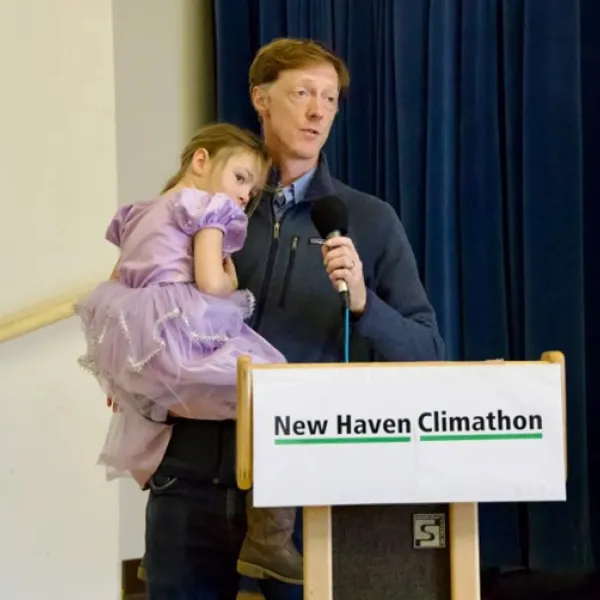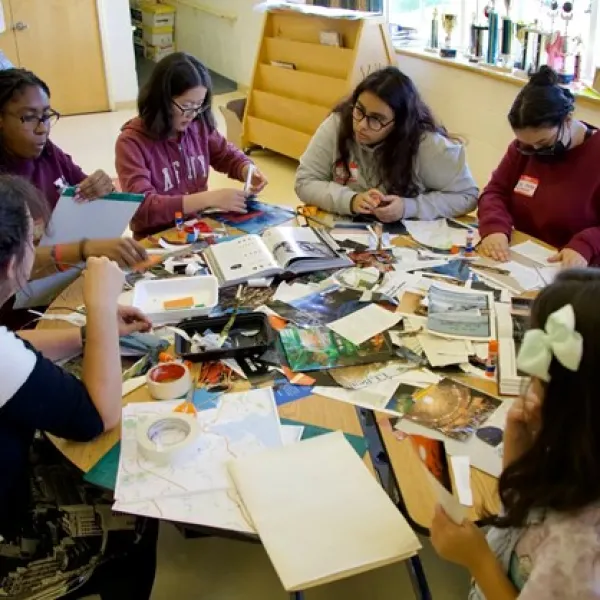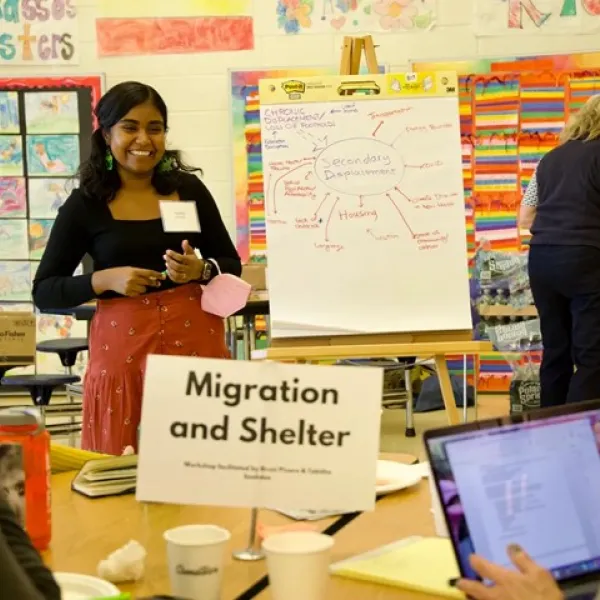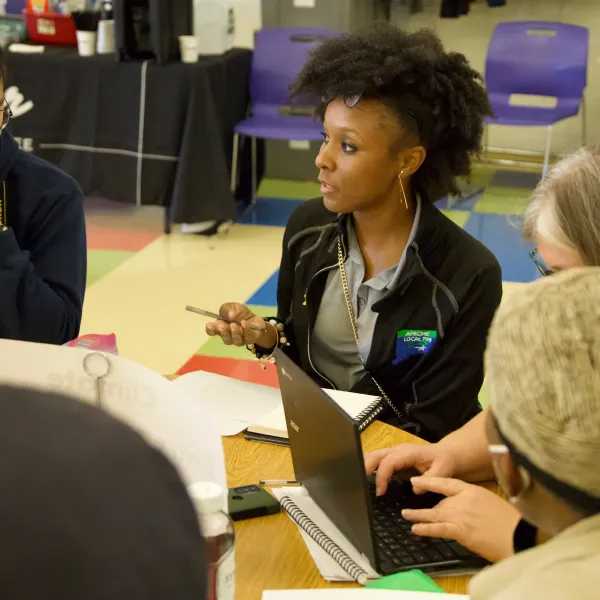Local Climate Education


The Action
The coastal city of New Haven, Connecticut, is vulnerable to the impacts of climate change—sea level rise in particular—and its government and residents know it. There are several initiatives and organizations in New Haven that aim to educate citizens about climate change and to improve the city’s climate change planning. New Haven Climate Movement, a small intergenerational grassroots organization started in 2018, pushes for climate action in the city through mobilizing community residents and other local organizations; a federally funded pilot project began in October 2022 in multiple Connecticut cities, including New Haven, to increase community participation in climate change planning; and the City Office of Climate and Sustainability began operating in December 2022.
Clearly, New Haven recognizes that climate change must be addressed. But until recently, there were few opportunities for residents to learn about the local climate change impacts that affect them directly. Reimagining New Haven in the Era of Climate Change (RNH), a small nonprofit founded in February 2022, sought to address this gap by developing targeted initiatives to raise awareness about local climate change impacts.
Democracy Challenge
Climate change planning in cities must be responsive to community needs. To ensure a high level of responsiveness, community members need opportunities to participate in these planning efforts, but top-down approaches to climate governance have too often been the norm in recent decades. Reversing this trend by implementing inclusive and democratic climate governance models requires opportunities for residents to learn how climate change impacts them directly.
In New Haven, as in many other cities, there has often been a lack of communication with residents about these impacts and strategies to address them. New Haven’s lack of engagement on these issues meant that its residents were not fully empowered to participate in climate change planning. This was particularly troubling for disadvantaged communities. These communities frequently face worse impacts from climate change compared to more well-off communities and often receive less access to information about local conditions that can cause them health issues.




How It Works and How They Did It
RNH took a novel approach to achieve its goals. It never aimed to be an organization with continuous programming; rather, its model was to develop a few high-quality events and publications to raise awareness about local climate change impacts in New Haven and then ensure that residents could access these materials online. RNH views climate change as an impetus to collectively reimagine and change New Haven so that it is more just and equitable for all its residents. Open access to its materials is therefore a critical part of the organization’s strategy. These materials provide a consistent opportunity for residents to equip themselves to engage in local climate change planning efforts.
RNH cofounder Steve Hamm collaborated with a small network of colleagues in the climate and community action spaces to create RNH. The organization funded its work through a combination of philanthropic donations, matching funds for these donations from the Sustainable CT Community Match Fund, and additional support from Connecticut Sea Grant.
RNH produced three main outputs: the New Haven Climathon, an October 2022 event that brought together climate activists, environmental professionals, and community members to raise awareness about local climate change impacts and catalyze action to address them; a Climathon Action Guide, which provides guidance on how to pursue sustainable lifestyle choices and contribute to local climate resilience efforts; and a Climate Crisis Poster Contest for local high school and college students that offered a monetary award for all entrants and an opportunity for the three winning pieces to be displayed around New Haven. The Climathon was held in a neighborhood projected to be inundated by sea level rise, which highlighted the importance of the event.
How’s It Going?
RNH’s Climathon was a huge success, attracting more than 200 attendees. The RNH website contains all materials from the event, including videos of the event’s speakers and live audience feedback, as well as the Climathon Action Guide, which is currently being translated into Spanish to supplement the existing English version. The Climate Crisis Poster Contest event video is also available on the RNH website, as are all the poster submissions. Though RNH does not have the capacity to continually host events and develop projects, the materials on its website will continue to provide vital information about local climate change impacts in New Haven and strategies to improve local climate resilience. This will help to inform and empower the local community to participate in the city’s efforts to address the climate crisis.
Considerations
- Funding: RNH funded its projects through multiple local sources and increased these funds through a Connecticut-specific matching program. Diversifying funding sources and seeking out locally focused opportunities is critical to finance climate action.
- Diversity, Equity, and Inclusion: To ensure that the Climathon Action Guide is accessible for and caters to New Haven’s Black and Latino communities, RNH hired two Black individuals to edit and illustrate the guide and a Spanish speaker to translate it, all three of whom were local.
- Knowledge Exchange: New Haven is eager to assist other cities in developing their own Climathons. The model is replicable and impactful, and RNH is ready to share its experience and provide guidance to others who wish to organize similar events.
Point of Contact
Steve Hamm
Cofounder
Reimagining New Haven
[email protected]
Who Else Is Trying This?
- New York City, New York, US: Resilient Schools Consortium is a New York City program that educates students about climate science, climate impacts, climate justice, and climate resilience. The program engages students in knowledge-sharing conversations with various city stakeholders and provides opportunities to participate in hands-on resilience projects.
- Santa Cruz, California, US: The City of Santa Cruz published a webpage with Climate Educational Resources for its community members so that they can access relevant climate information. The city provides these resources to inform residents’ engagement in local climate action planning and implementation.
- The Mid-Atlantic Climate Change Education Conference is an annual conference that was first held in 2020. It brings together hundreds of educators from cities and towns in the US mid-Atlantic region to discuss their climate work and provide a forum to exchange ideas and curricula related to climate education. This conference is not designed for the general public, but it is an important component of climate education in the region.